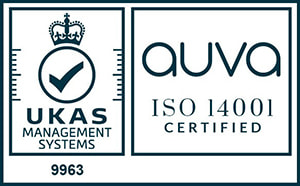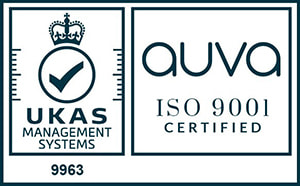First generation smart boilers
Keep it simple stupid
We’ve all heard the phrase “keep it simple stupid” and get the gist that as the world gets more complicated it’s the simple solutions that provide true, sustainable benefits.
But this phrase, or the KISS principle as it’s more accurately known, was created 60 years ago by American aeronautical engineer, Kelly Johnson, to make sure no one on his systems design team lost sight of their goals through overly-complicated thinking. For example, Johnson wanted the aircraft he was designing to have simple, easy to carry out repair processes, so that
mechanics could fix problems using the tools and skills they already had. You might argue that the world in the mid-fifties was a very different place to the one we inhabit now, and that attaining simplicity is outmoded, but you’d be wrong. KISS is alive and well in, of all places, the software industry: the KISS principle states that “most systems work best if they are kept simple rather than made complex; therefore simplicity should be a key goal in design and unnecessary complexity should be avoided.” Practitioners say that as software systems are maintained by human developers with limited capabilities, any increase in a system’s complexity will increase the difficulty of maintaining it.
But it takes more than a little bit of genius to be that uncomplicated. Just think James Dyson and his mission to create a vacuum cleaner that doesn’t lose suction; or Teflon, otherwise known as Polytetrafluoroethylene, a coating which is, quite simply, used everywhere and, at the other end of the scale, the humble paperclip. In fact the world is full of great examples where objectives have been met thanks to the clear, unclouded thinking of dedicated inventors.
Less is more
Harry Bosscher, the chief executive of Intergas Heating, probably didn’t think of himself as an inventor when, as a senior engineer at the company in 1994, he was asked to find an alternative to the Geyser-style boilers being used by a housing association in the Netherlands. These boilers were prone to break-downs, a cause of frustration among tenants, and did not provide adequate energy efficiency or economy. After a couple of years of development, Bosscher had built a prototype for a combination boiler that was so advanced, yet so simple, it remains at the cutting edge of boiler technology almost two decades after its launch. The boiler has only 12 components, which includes four moving parts; there’s no secondary hot water plate heat exchanger, no diverter valve, no valve motor and no automatic air vent. With fewer parts there’s less to go wrong and, unlike other brands on the market, all these boilers condense all of the time in both central heating and hot water modes, which means they deliver exceptional energy efficiency.
Ensures a first-time fix
Last year the design team came up with yet another first: the ECO RF, a new generation of smart boilers. And, yes, the concept is a simple one. The ECO RF retains all the benefits of the current range of condensing boilers, but new vacuum insulation reduces heat and energy losses to the minimum and ensures whisper-quiet operation; there’s an A-rated pump which halves energy consumption, and makes this boiler 2015-compliant ahead of new legislation to be introduced under the Energy-Related Products Directive this September. But it is the remote monitoring facility which sets this boiler apart from the rest. Every ECO RF boiler comes fitted with a radio frequency module as standard. This module holds software which can send and receive information wirelessly from the boiler to the maintenance contractor or direct labour organisation (DLO) on a continuous basis – up to 240 properties can be linked in one network via a single internet connection. Its benefits are far ranging and all contribute to the continued comfort of the tenant. For example, should a fault occur the contractor or DLO will receive an email and, as the fault has been clearly identified, they will know which component needs to be replaced. This, in turn, helps to ensure a first-time fix. All aspects of boiler performance can be monitored, from gas usage to managing heating and hot water requirements. The system also allows real time data to be easily accessed which can save a social housing organisation money by reducing call outs and administration costs. And, importantly, it further improves an organisation’s Duty of Care, providing extra support to vulnerable people in their own homes.
While we should all salute Kelly Johnson for KISS, I’d like to thank Albert Einstein too, as he was on the same wavelength years earlier when he said: “Everything should be made as simple as possible, but not simpler.”
Stephen Zouch
Managing Director, Intergas Heating






